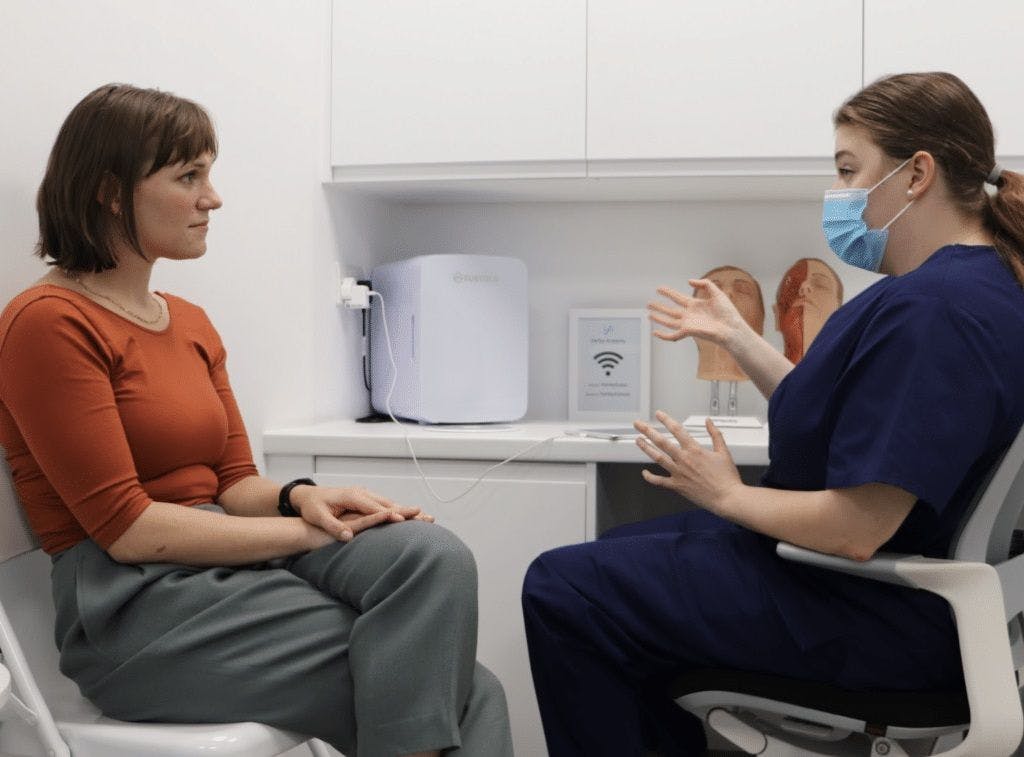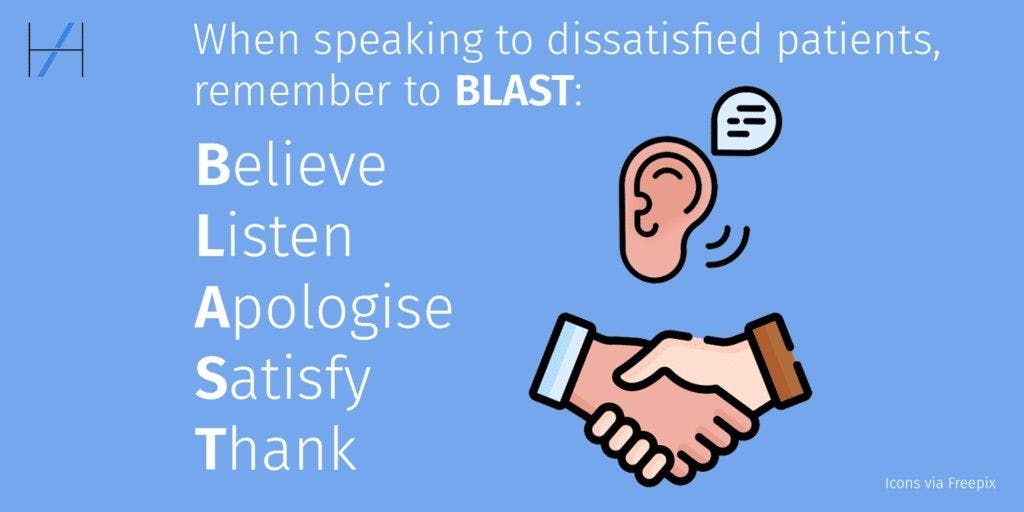Managing Complaints From Aesthetics Patients

The fear of complaints or legal action from patients is a common concern among healthcare professionals considering a career in aesthetic medicine.
Here we explore managing complaints from aesthetics patients to help put your mind at ease should any arise…
Managing Complaints

Listen and ensure your patient feels heard
Dr Raquel is an experienced, Level 7 qualified aesthetics specialist who runs her own holistic practice as well as being a senior clinical trainer at Harley Academy.
Her advice for managing complaints from aesthetics patients is as follows…
“If a patient comes back to you and they are unhappy with the treatment you provided, one of the best tips that I can give you is to listen to your patient. That’s the most important thing.
“Most of our patients want to be heard so let them speak. That doesn’t mean they’re going to be correct and the complaint may sometimes just be a miscommunication. Just by having a friendly open chat, you can both get to a nice outcome.
You’re always going to have difficult patients and, as long as you are professional, keep calm, pause, let them speak and feel heard, I’m sure you won’t have any problems dealing with patient complaints.”
Follow the BLAST protocol
This wise advice from Dr Raquel echoes the BLAST protocol which can be useful when dealing with unhappy patients.
BLAST stands for Believe – Listen – Apologise – Satisfy – Thank.

Believe
…your patient when they explain their issue to you. Do not dismiss it. Whatever the concern is, it is real and valid to them and should be taken seriously.
Listen
…when your patient is telling you why they are unhappy or disappointed and how they feel. As Dr Raquel shared above, this does not mean they are right but making sure your patient feels heard and understood is a crucial part of managing complaints and working through any issues. It can also go a long way towards diffusing tensions and easing their fears or even anger, if they feel you are being respectful.
Apologise
…for whatever the issue is once it has been properly identified and investigated, if you were at fault. If an in person discussion does not resolve matters, advise the patient as to your complaints procedure and how long it will take for you to thoroughly investigate their concerns before coming back to them. Do not apologise in this instance in case it is taken as an admission of guilt or liability. This is especially important where complications are involved.
Mostly complaints about treatment results usually boil down to a miscommunication or misunderstanding. Generally these can be easily rectified by following this protocol.
However, if you do find yourself dealing with complications-related grievances, there is a useful article on complaints handling following complications on Comma, the aesthetic medicine network (members only – free to join for licensed healthcare professionals working in aesthetics). We recommend taking a look at this and saving the downloadable guide for future reference.
Satisfy
…your patient by offering practical solutions to help them achieve the results they were hoping for, where appropriate. This may include referring them on to other practitioners, especially in cases where for example, skin laxity is an issue so skin tightening treatments may be needed to improve their results. This may also happen in cases where it turns out the patient was looking for a more transformative, possibly “unnatural” look than you are prepared to provide. In this case, it’s often best to explain your reasons to your patient – tell them exactly what you are and are not prepared to offer but do not feel under any obligation to refer them on to someone else. You can always direct them to a reputable register where they can search for local injectors, instead.
Thank
…your patient for coming to you to try to resolve the issue. Even if it doesn’t actually get resolved, at least they gave you the opportunity to find out why they were unhappy. This is valuable information that can highlight any gaps in your knowledge or approach which you can then work on to improve your customer experience.
We hope you find this advice useful and if you have any further questions on complaints-handling, be sure to ask your mentor during your next training session! Or, if you’re not one of our students, you can let us know via the Harley Academy Instagram account or our Facebook page.












